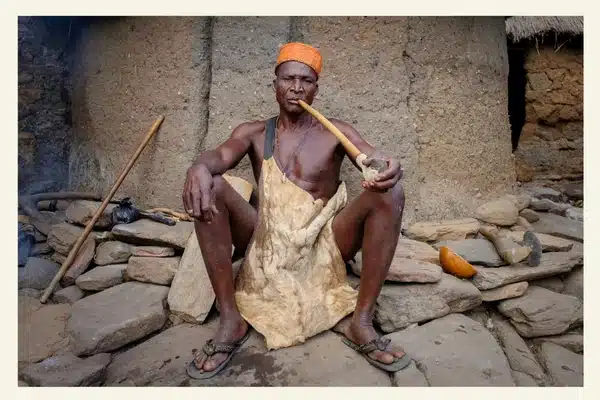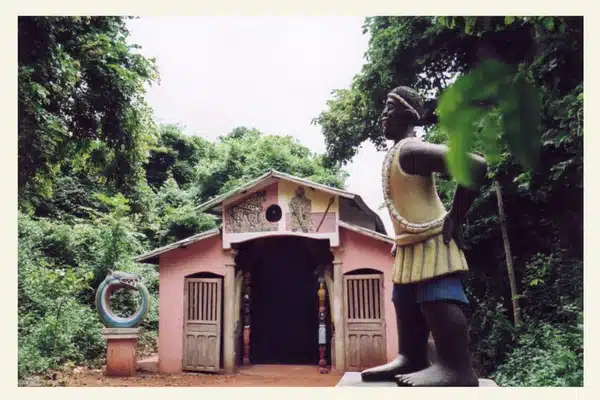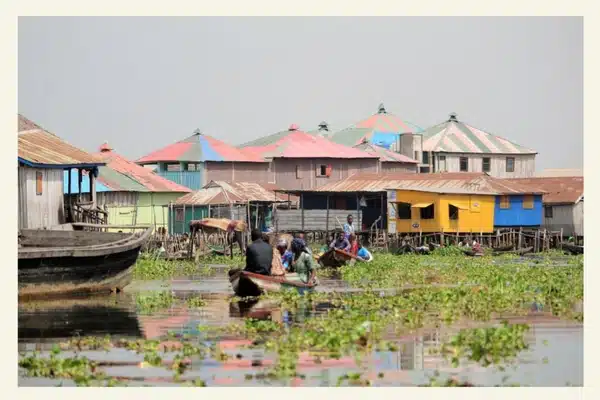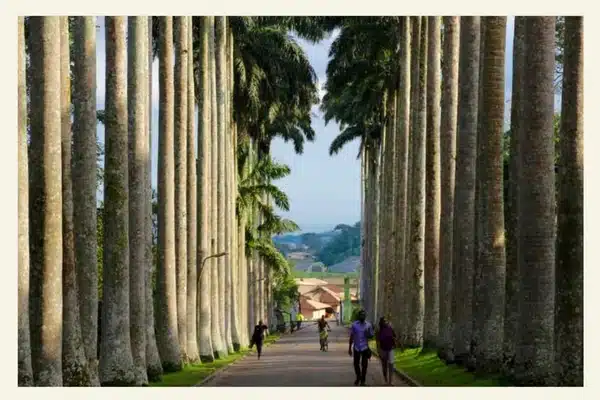- 11 Days
- Feb-Aug
- Availability: 15
- Minimum Group: 5
Cultural Immersion in Ghana, Togo, and Benin
Descriptions
Embark on an adventure through Ghana, Togo, and Benin to experience their rich culture and stunning natural beauty. Explore the diverse wildlife, ancient forts, secluded beaches and colonial buildings in Ghana.
Visit historic sites like the Posuban sanctuaries, slave trade museums, and Kakum National Park. In Benin, visit the historical museum in Abomey and take a safari in Pendjari National Park. Togo offers a unique cultural experience, with a diverse mix of ethnic groups and their traditional customs, best experienced by taking a scenic route along its 650 km. Immerse yourself in the diverse cultures and rich history of West Africa with this cultural journey.
Included
- Double accommodation in BB and meal plan as outlined in the detailed program
- Tours and Entrance Fees to Tour Sites as Outlined in Itinerary.
- Meet & great and airport transfers
- Overland Transportation via air-conditioned Vehicle.
- English Speaking Professional Tour Guide.
Excluded
- All Personal Expenses e.g. telephone bills, laundry etc.
- Items not listed above as included
- Beverage
- Unforeseen circumstances.
From
€ 3,429
/ pp
*Indicative price
Send us an enquiry
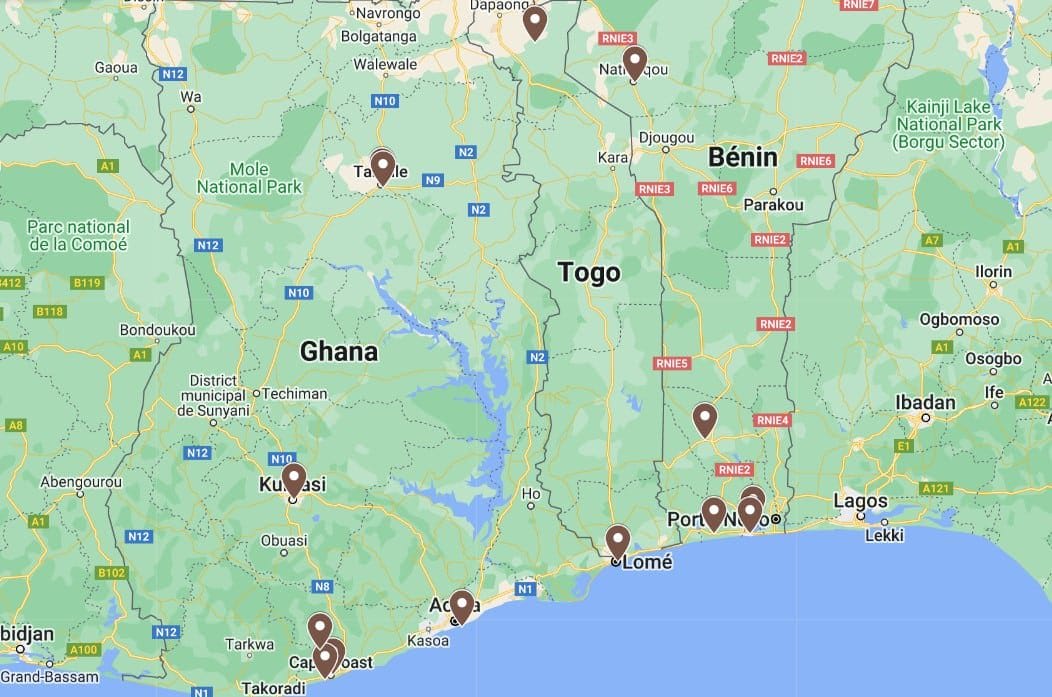
Popular Spots
- Exploring the colorful and vibrant Makola Market in Accra
- Visiting the National Museum of History and Ethnography to learn about Ghana's heritage
- Paying tribute to Dr Kwame Nkrumah at the Kwame Nkrumah Mausoleum
- Visiting the Kpasse sacred forest in Ouidah to learn about the Voodoo religion
- Exploring the stilt village of Ganvie on Nokoue Lake
- Exploring the Yom village of Taneka Koko and gaining a deeper understanding of their cultural heritage
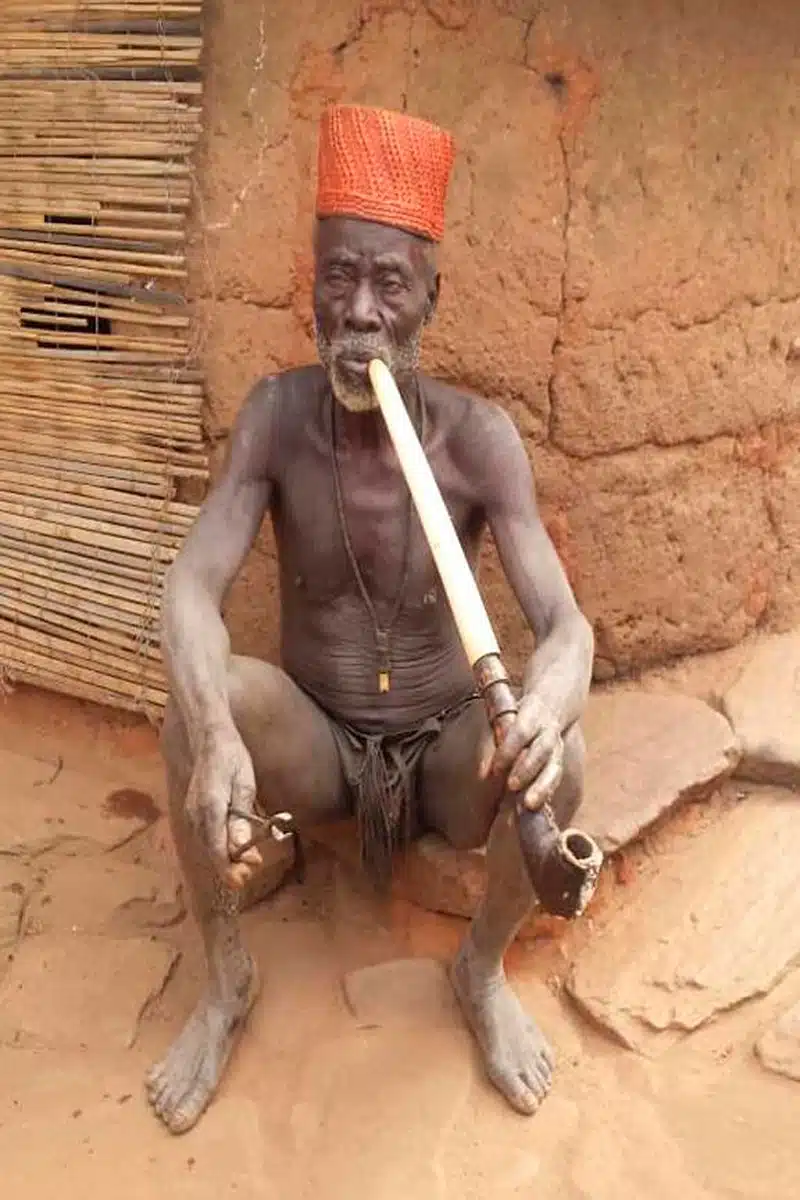
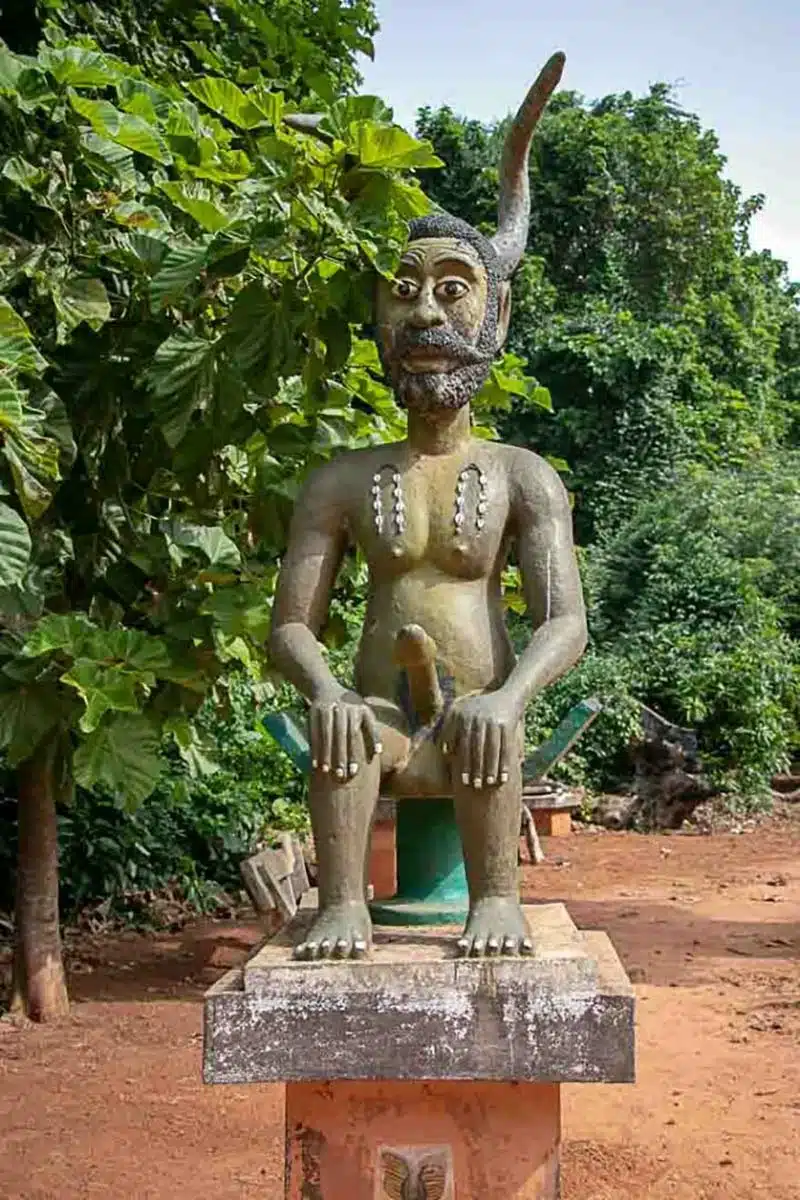
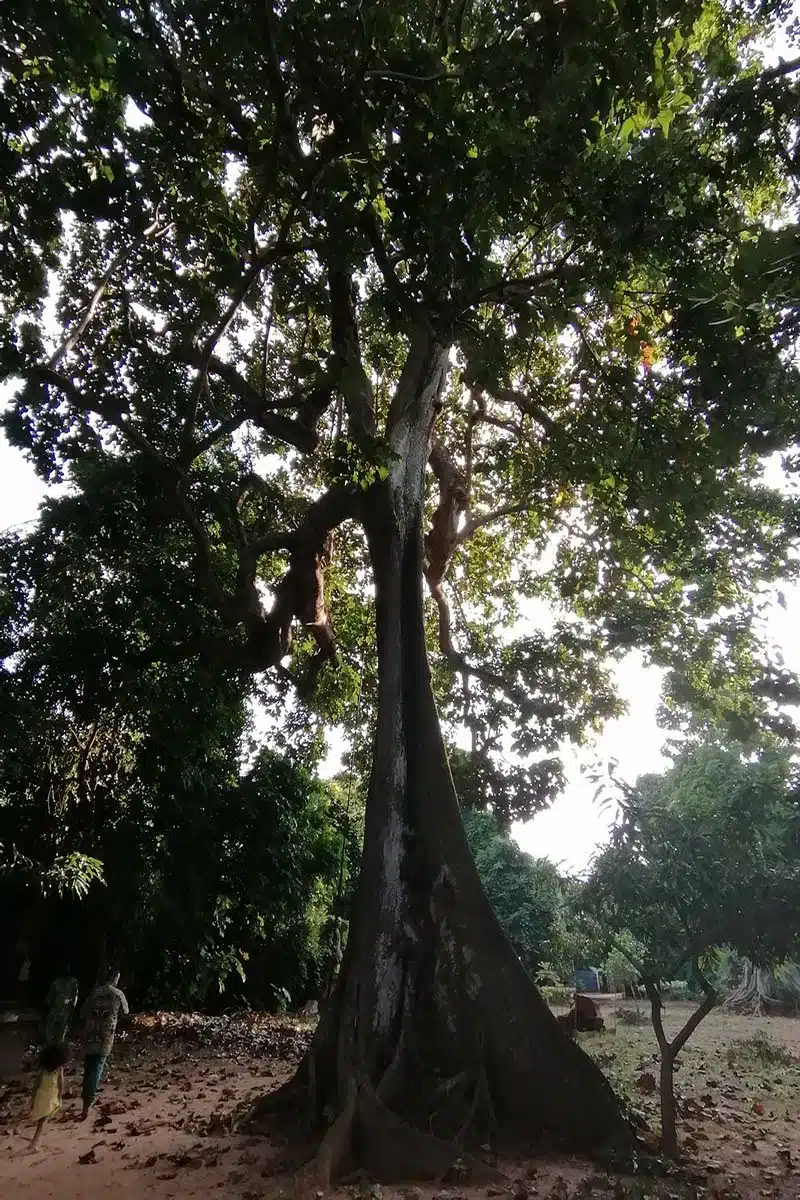
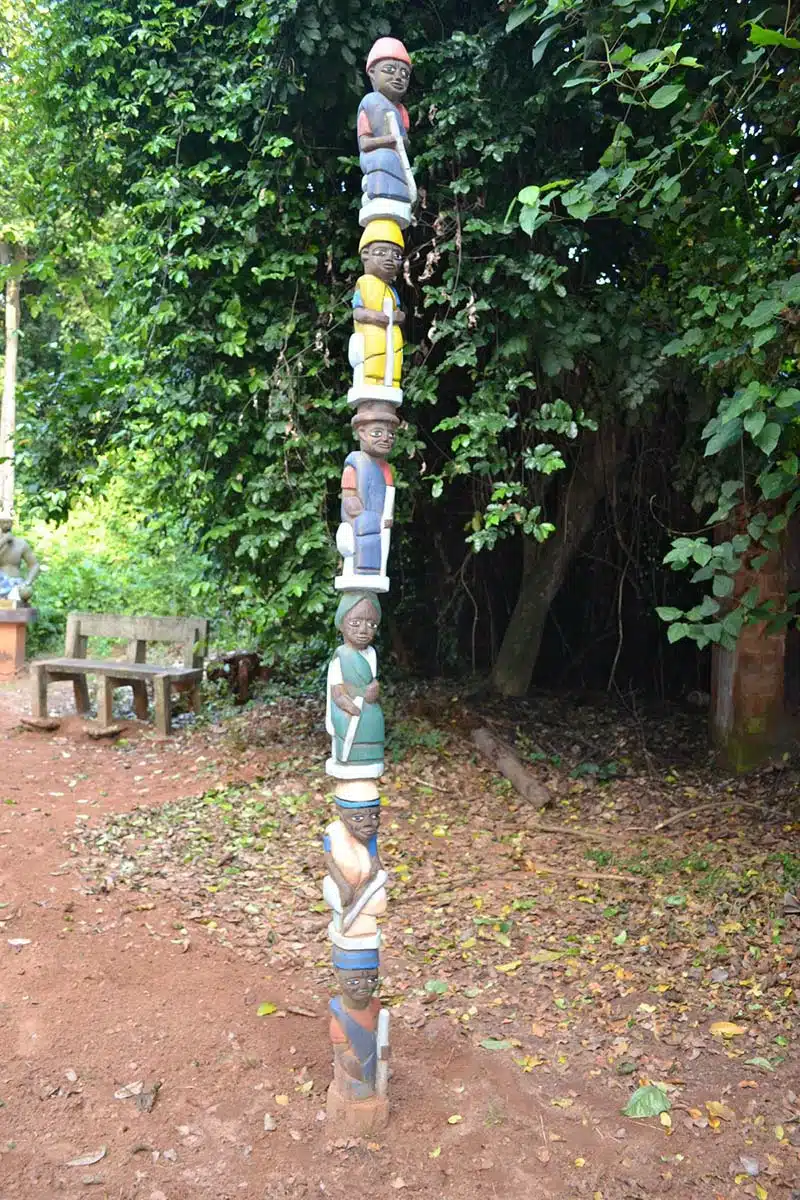
Memorable Moments.
Visiting the ancient forts and castles in Ghana
Visiting the ancient forts and castles in Ghana, such as Elmina and Cape Coast. These castles were built by European colonizers and were used as holding cells for enslaved Africans before they were transported to the Americas. Visiting these sites will give you an insight into the history of the slave trade and its impact on the region. The castles have been converted into museums, where you can learn more about the history of the slave trade and see artifacts and exhibits that depict the lives of the enslaved people.
Discovering the rich cultural heritage of Togo
Discovering the rich cultural heritage of Togo by visiting its many ethnic groups. Togo is home to a diverse array of ethnic groups, each with their own unique traditions and cultures. The Ewe and Guins populations in the South, the Ana and Tem in the Central region, the Bassar, Kabyés and Tamberma of the Kara region, and the Moba-Gurma of the far north are just a few of the many ethnic groups you can visit during your tour. These communities have remained deeply rooted in their traditions and customs, making Togo a great destination for those interested in learning more about the different cultures of West Africa.
Trip Schedule.
 Kotoka International Airport in Accra
Kotoka International Airport in Accra
On the first day of the tour, upon arrival at Kotoka International Airport in Accra, Ghana, you will be greeted by a guide and taken for a leisurely welcome breakfast. Accra, the capital of Ghana, is a city full of contrasts with a blend of modern and traditional elements. The city has its origins as a scattering of villages and offers a great introduction to Ghana. After breakfast, you will embark on an afternoon tour of Makola Market, a colorful central market, where you can indulge your senses with a wide range of items sold by primarily women traders, including locally crafted jewelry and land snails. You will spend the night at Labadi Beach Hotel (or similar).
city tour of Accra
On the second day, you will have breakfast and depart for a half-day city tour of Accra, including a visit to the National Museum of History and Ethnography. The museum showcases exhibits that reflect the heritage of Ghana throughout history and houses a varied collection of Ghanaian artifacts. Later in the day, you will visit the Kwame Nkrumah Mausoleum and Park, the final resting place for Dr. Kwame Nkrumah, the first President of Ghana. This mausoleum has been frequented by many world dignitaries. You will spend the night at Coconut Grove Beach Resort in Elmina.
Elmina Castle
On the third day, you will visit the UNESCO World Heritage Site, Elmina Castle, the first and oldest European structure built on African soil. Built by the Portuguese in 1482, it was used for gold and ivory trade and later taken over by the Dutch who used it as a slave market. You will take a guided tour of the slave dungeons and condemned cells where slaves who attempted to escape were held. Afterwards, you will depart for Kakum National Park, a beautiful rainforest reserve located an hour north of Elmina, where you will explore the canopy of the rainforest via a suspension bridge. You will spend the night at the Golden Tulip Hotel in Kumasi.
Kumasi and Ashanti craft village – Tamale Gariba Lodge or similar
After breakfast at the hotel, embark on a tour of the National Cultural Center in Kumasi where you will have the opportunity to learn about and witness the traditional techniques and processes used in creating various Ghanaian artifacts such as brassworking, woodcarving, pottery making, batik cloth dyeing and kente cloth weaving. Afterwards, visit a few Ashanti craft villages to see the skill and creativity of local craftsmen using simple tools to create beautiful and unique souvenirs. Overnight at Gariba Lodge or similar in Tamale.
Tamale – Yendi – Tatale – Kara Hotel Kara or similar
Start the day with breakfast at the hotel and then embark on a 3-hour journey towards Tatale, with a stop along the way at the Gnani village near Yendi. Gnani is a community made up of people who were exiled from their homes due to accusations of witchcraft and wizardry. Meet with the people and hear their personal stories. Continue on to the Bassar village, famous for its ancestral iron mining and processing skills. Overnight at Hotel Kara or similar in Kara.
Benin: Kara – Koutammakou – Somba – Natitingou Hotel Tata Somba or Similar
After breakfast at the hotel, travel for 3 hours to Koutammakou, making a stop at Losso village to admire their round houses, known as “soukala”. Upon arrival at UNESCO World Heritage Site, Koutammakou, interact with the local population and visit their famous mud-tower houses, still the preferred way of living today. These structures are very impressive, many of which boast two floors and occasionally flat roofs. Later, cross into Benin via Boukoumbe and drive through similar
Natitingou-Abomey
On day 7 of the tour, participants will have the opportunity to visit the Yom village of Taneka Koko in Natitingou. This remote village is home to a community that still preserves their traditional way of life, despite the influences and challenges from the outside world. Visitors will have the chance to meet the spiritual leader of the community and visit sacred places, gaining a deeper understanding of the village’s cultural heritage. Afterwards, the tour will continue to the city of Abomey, which was once the capital of the Kingdom of Dahomey, an African kingdom that existed from 1600 to 1900.
Abomey-Ouidah
On day 8, guests will embark on a 2-hour drive through the Mono River valley to the city of Ouidah, known as the voodoo capital of Benin. Upon arrival, visitors will have the opportunity to visit the Kpasse sacred forest, where they will be introduced to the Voodoo religion and have the chance to admire sculptures of voodoo gods scattered throughout the forest.
Ouidah-Ganvie
On day 9 of the tour, participants will head to Abomey Calavi, about an hour east of Ouidah, where they will board a motorboat for a cruise on the Nokoue Lake to visit the UNESCO World Heritage Site of Ganvie, Africa’s stilt village. Guests will have the chance to explore the narrow alleyways between the stilt huts and visit the floating market, gaining insight into the village’s main industries of fishing and fish farming.
Ganvié-Lomé
On day 10 of the tour, guests will be transported to Togo’s capital city, Lomé. The city is known for its vibrant blend of modern and traditional cultures. The tour will begin with a visit to the Place de l’Indépendance and the National Museum, where guests will learn about Togo’s history and culture. Guests will also be able to observe sacred voodoo shrines alongside the city’s Roman Catholic Cathedral. Next, the tour will take guests along Togo’s sparse coastline, home to several small fishing villages, where they can admire colonial architecture. After lunch in China Town, guests will have the opportunity to visit the Akodesséwa fetish market, where they can find magic remedies and local voodoo charms used by local sorcerers.
Lomé-Accra-Return flight
After enjoying breakfast at your hotel, you will set off early in the morning towards the Segbe border. Once you have completed the necessary customs and immigration formalities, you will continue on to the Aburi botanical gardens, located just a short distance north of Accra. Spanning 64.8 hectares, these century-old gardens boast a diverse collection of tropical plants that attract a variety of bird and butterfly species. Take a tour of the gardens and learn about their history, including their role in promoting the cultivation of cocoa and rubber.
Testimonial
What They Say

Crowded,full of busy people, you can find whatever you can imagine, from the head of a donkey for spells, to beautiful fabrics and clothing.
Food, handcrafts, tools...
just walk around.


 Kotoka International Airport in Accra
Kotoka International Airport in Accra




